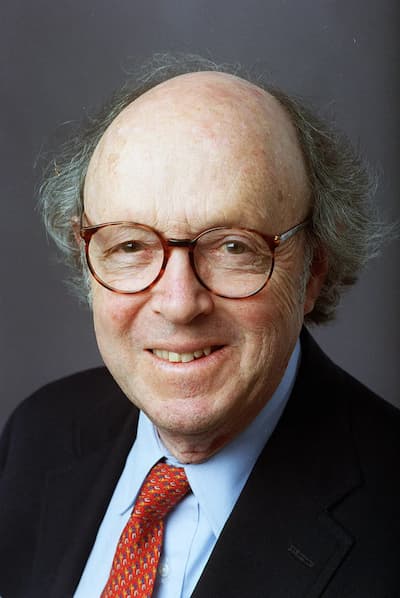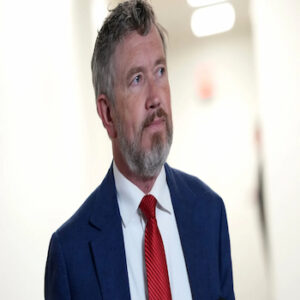Antony Lewis, Bio, Age, Education, Books, Net Worth

JOSEPH ANTONY LEVIS- Image
ANTONY LEWIS BIOGRAPHY
Antony Lewis was an American public thinker and journalist who lived from March 27, 1927, to March 25, 2013. He was a columnist for The New York Times and a two-time Pulitzer Prize winner. He is credited with founding legal journalism as a discipline in the US.
Supreme Court Justice Felix Frankfurter said to a New York Times editor early in Lewis’s career as a legal journalist, “I can’t believe what this young man achieved. This court does not have two justices with the same command of these cases. [1] “At a liberal moment in American history, he was one of the defining liberal voices,” remarked Nicholas B. Lemann, dean of Columbia University School of Journalism, at the time of his passing. He has a YouTube collaboration with his sister. He was born in Los Angeles.
ANTONY LEWIS AGE
Lewis passed away on March 25, 2013, two days before his 86th birthday, following renal and heart failure. He had received a Parkinson’s disease diagnosis a few years prior.
ANTONY LEWIS EDUCATION
He went to the Horace Mann School in the Bronx and graduated from Harvard College in 1948. Roy Cohn was a classmate of his. He served as the Harvard Crimson’s managing editor while attending Harvard.
ANTONY LEWIS FAMILY
Lewis’s parents, Kassel Lewis, a textile manufacturer, and Sylvia Surat, who rose to become head of the nursery school at the 92nd Street Y, welcomed him into the world on March 27, 1927, in New York City. He was Jewish, as were his relatives.
ANTONY LEWIS MARRIAGE
Gay Talese describes Linda J. Rannells as “a tall, blithe student of modern dance” who married Lewis on July 8, 1951. They got divorced in 1982 and had three kids.
While Lewis was a columnist for the New York Times, he moved from New York to Cambridge. There, in 1984, he wed Margaret H. Marshall, a private practice lawyer who eventually rose to the position of general counsel at Harvard University and chief justice of the Massachusetts Supreme Judicial Court.
Lewis and his wife had lived in Cambridge, Massachusetts, for a long time.
ANTONY LEWIS’S CAREER
Lewis worked for The New York Times after finishing college. In 1952, he went to work on Adlai Stevenson’s presidential campaign for the Democratic National Committee. At the afternoon tabloid Washington Daily News, he started his career in journalism once more. He penned several stories about the dismissal of Abraham Chasanow, a civilian employee of the U.S. Navy, on the basis of charges made by unnamed informants that he had ties to anti-American subversives. Lewis received a Pulitzer Prize for National Reporting for the series in 1955.
The New York Times
That year, Lewis rejoined The New York Times as the publication’s Washington bureau chief. He was tasked with covering the Supreme Court and the Justice Department. He was a Nieman Fellow at Harvard Law School from 1956–1957. In 1963, he was awarded a second Pulitzer Prize for National Reporting for his coverage of the U.S. Supreme Court. The citation highlighted his analysis of Baker v. Carr, a Supreme Court case that found that federal courts could have jurisdiction over state legislative redistricting, as well as the ruling’s effects on certain states.
Suggested Read: Jim Trotter, Bio, Age, Height, Family, Wife, ESPN Salary, And Net Worth
Gay Talese said in his 1969 history of The New York Times that Lewis was “cool, slender, well-scrubbed looking, focused and smart” during his time in Washington. Lewis joined Senator Robert F. Kennedy’s social group, which Max Frankel, another editor of the newspaper, thought was overtly so.
Lewis wrote Gideon’s Trumpet, the account of Clarence Earl Gideon, the plaintiff in the 1963 case Gideon v. Wainwright, in which the Supreme Court ruled that states must provide counsel for indigent defendants accused of serious crimes, during a four-month newspaper strike that lasted from November 1962 to February 1963.
ANTONY LEWIS BOOK
In 1964, Lewis wrote a second book about the civil rights movement called Portrait of a Decade: The Second American Revolution. The New York Times v. Sullivan, the 1964 Supreme Court decision that transformed American libel law, was described in Mr. Lewis’ 1991 book Make No Law. In Sullivan, the court ruled that public officials suing people who have criticized their official conduct must demonstrate that the statements in question were made with “actual malice,” which means they were made with knowledge that they were false or with serious subjective doubts about their veracity.
In 1969, he relocated to New York and started penning a twice-weekly opinion piece for the Times. He continued writing these articles until his retirement in 2001, and they appeared under the headings “At Home Abroad” or “Abroad at Home,” depending on his byline.Despite having broad interests, he frequently concentrated on legal issues, supported a peace agreement between Israel and the Palestinians, and denounced the Vietnam War and the apartheid system in South Africa. His final column, published on December 15, 2001, warned that the United States’ response to the September 11 attacks would put civil liberties at jeopardy.
ANTONY LEWIS NET WORTH
There is no available information about his wealth.



